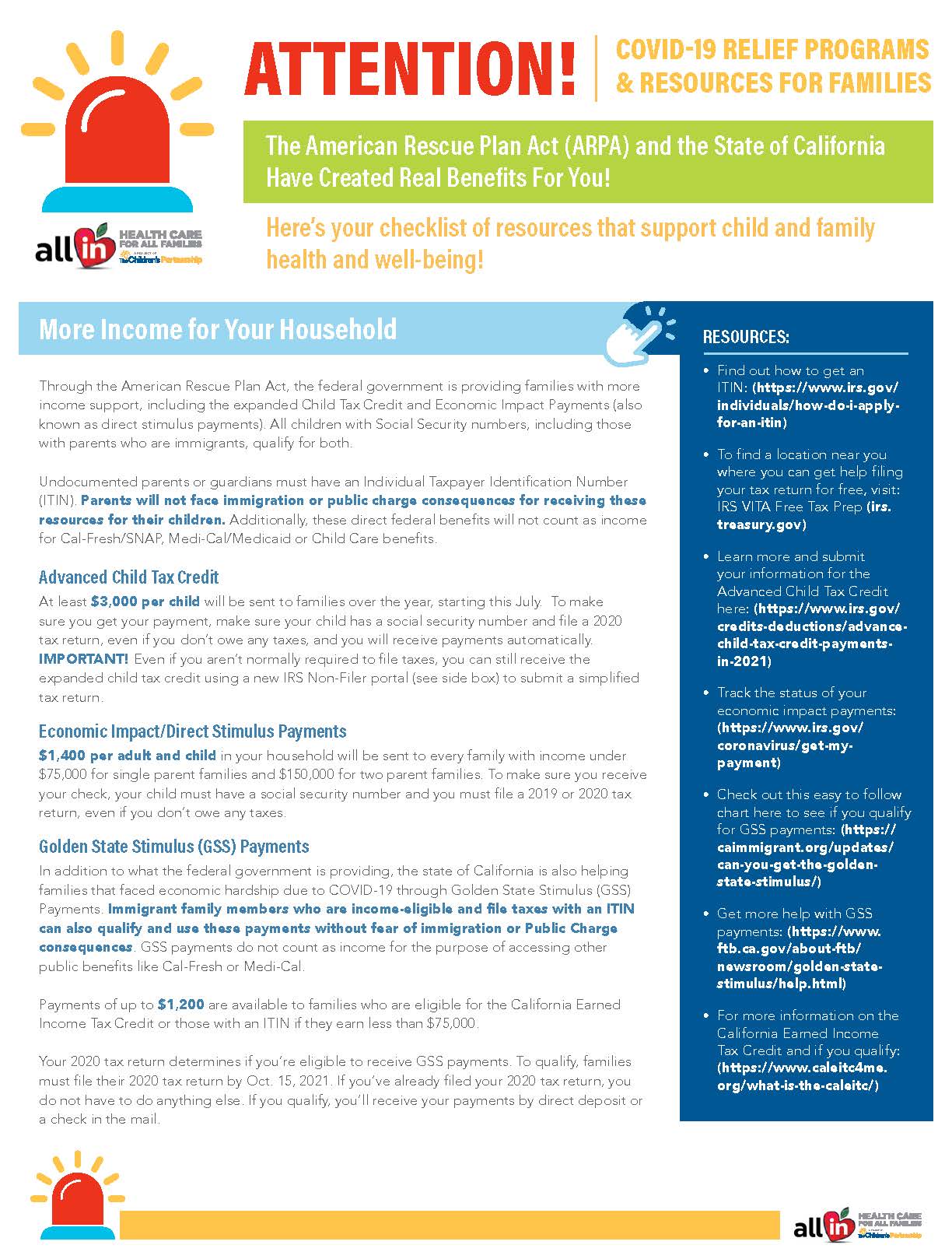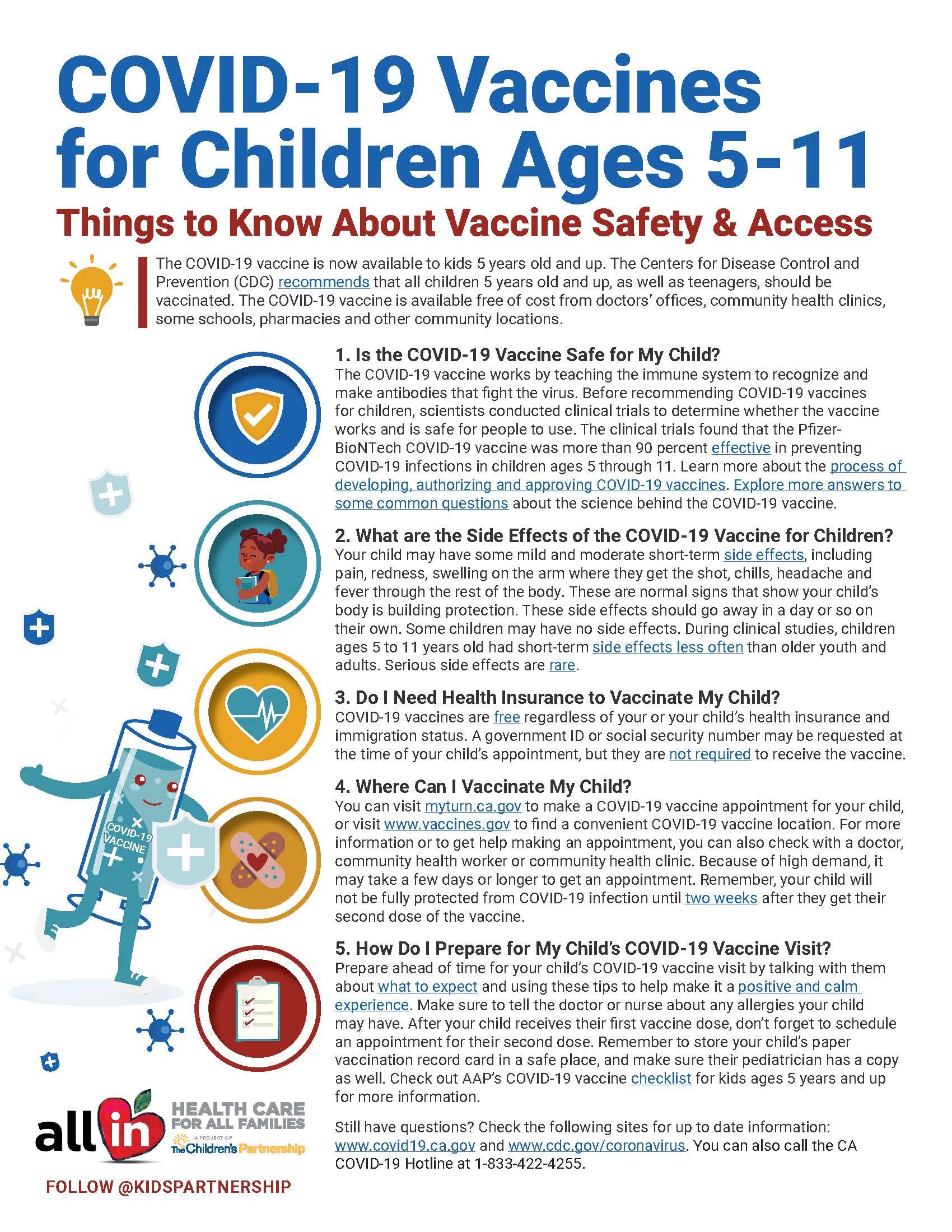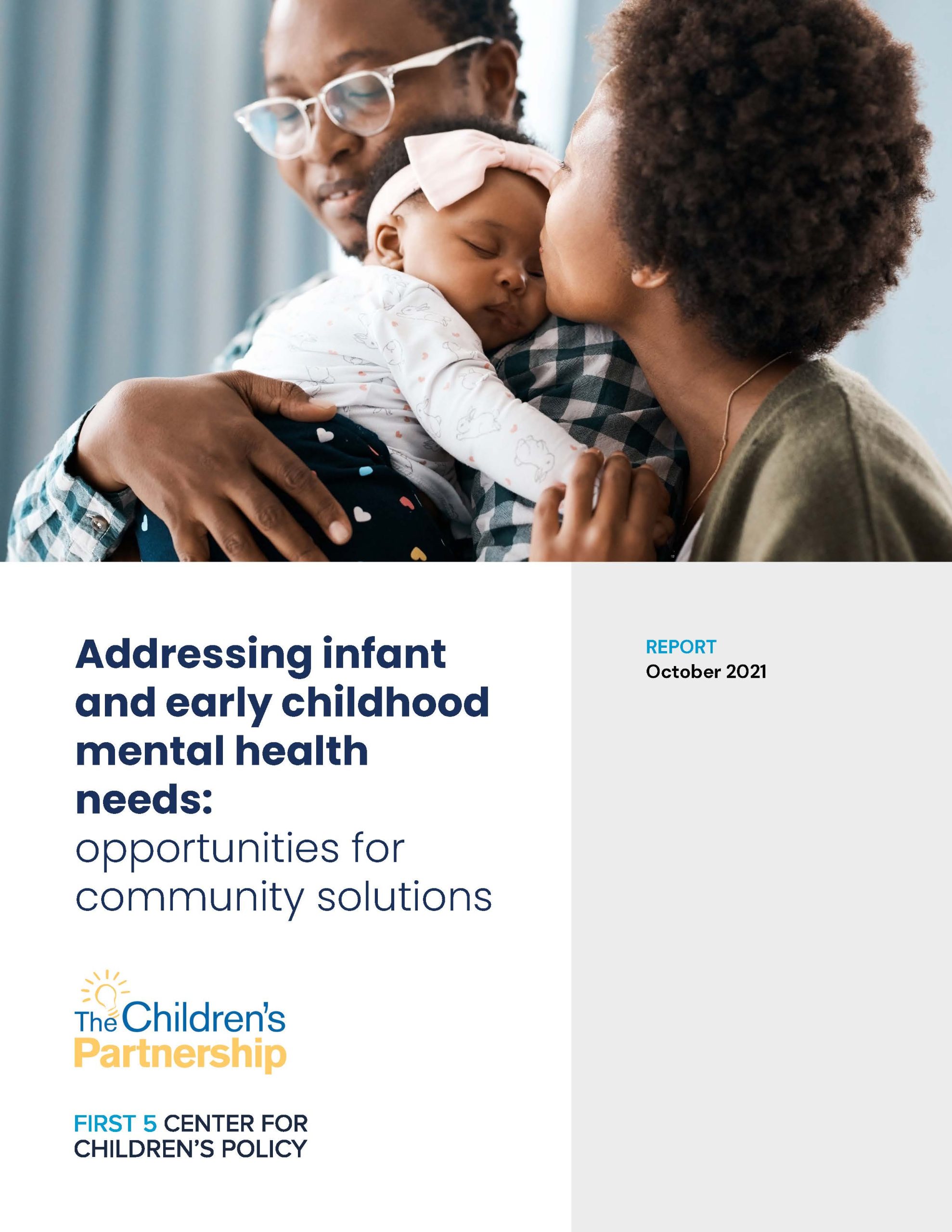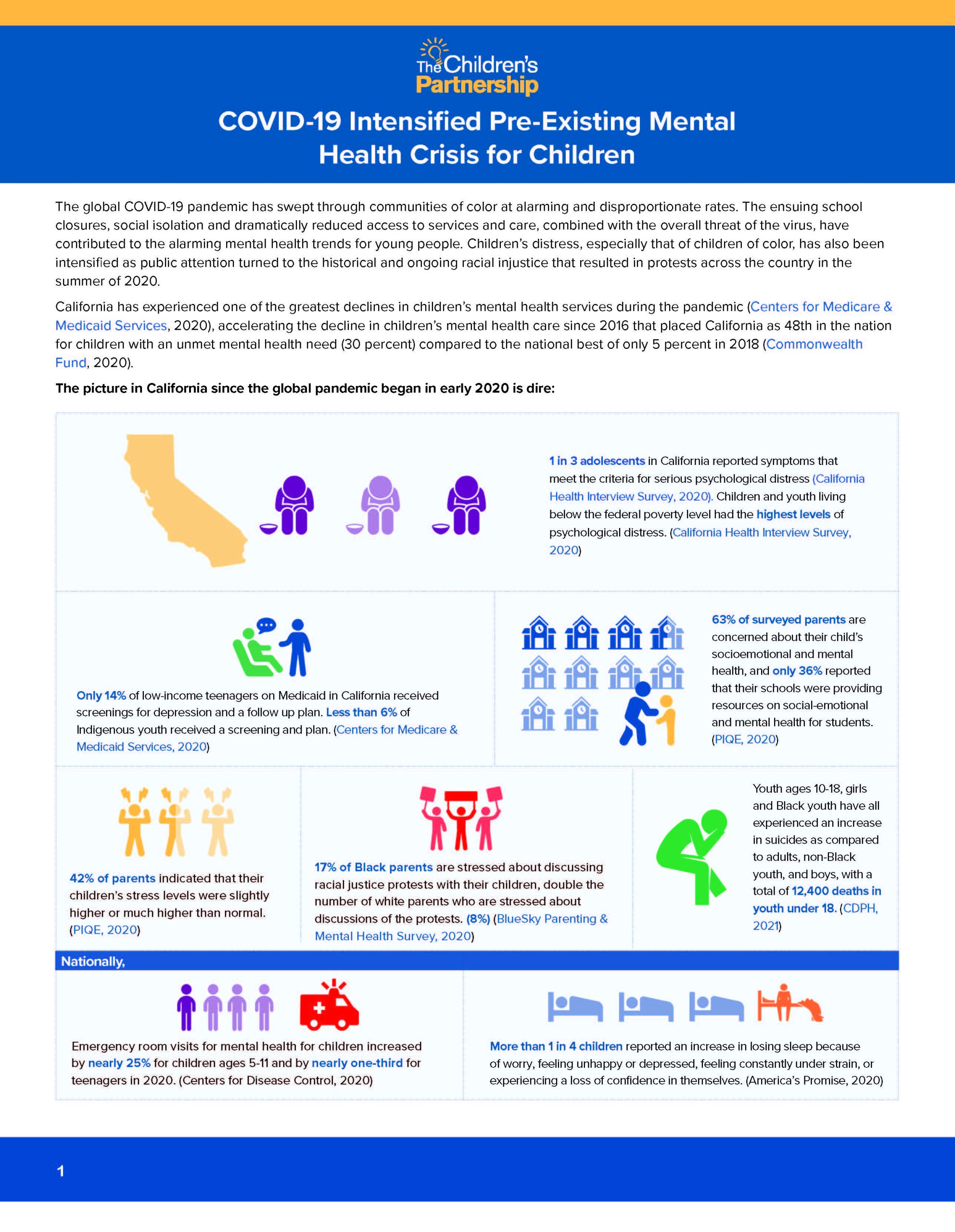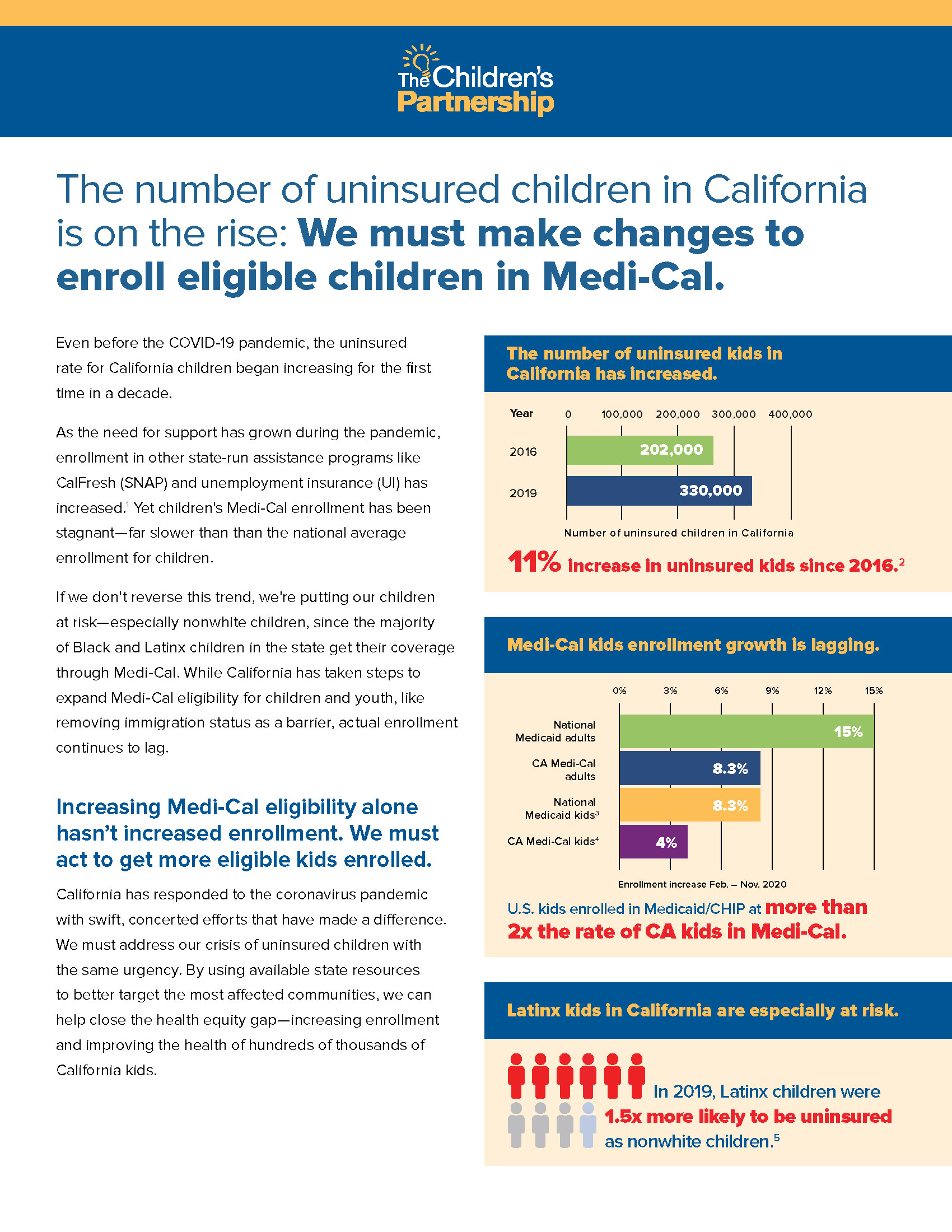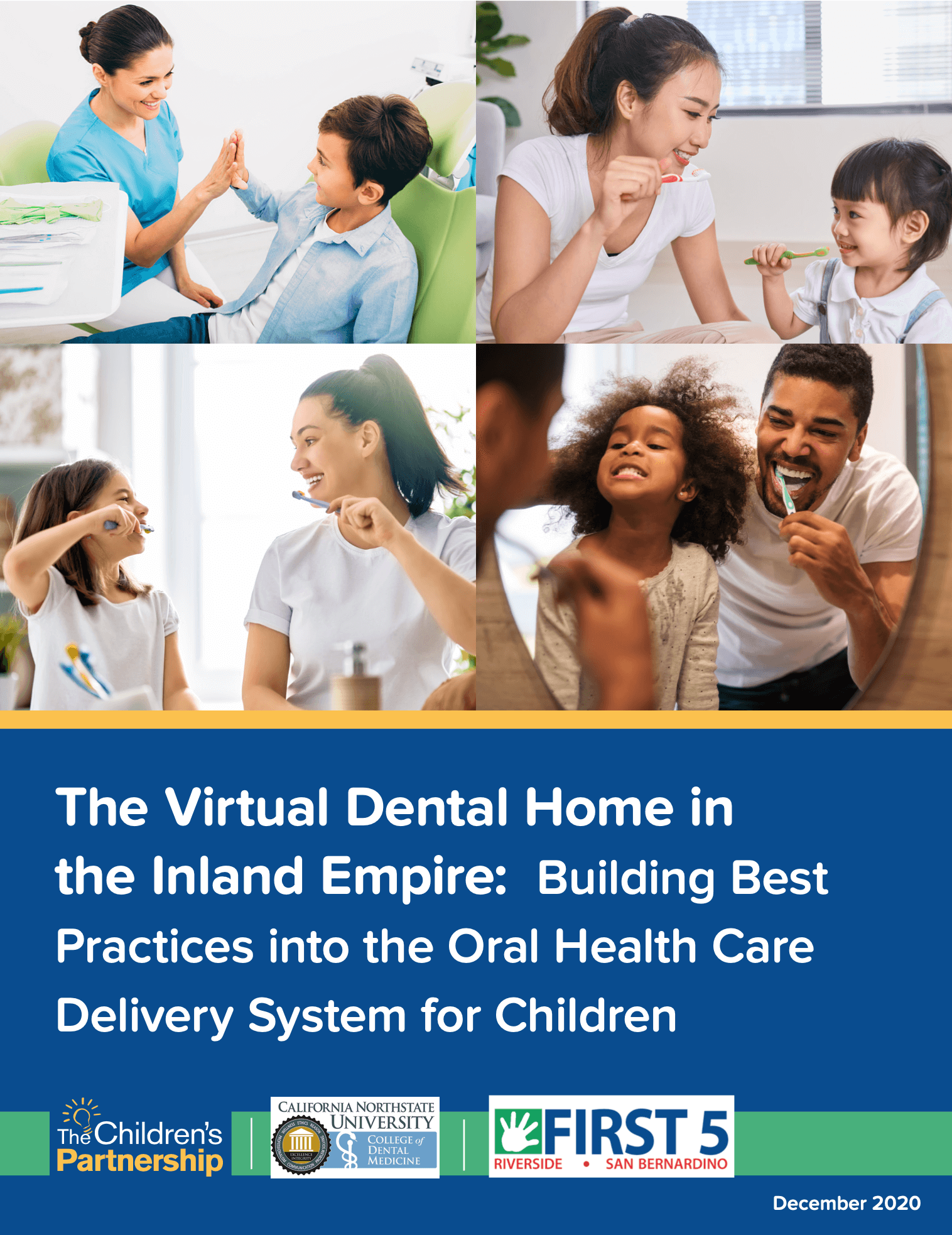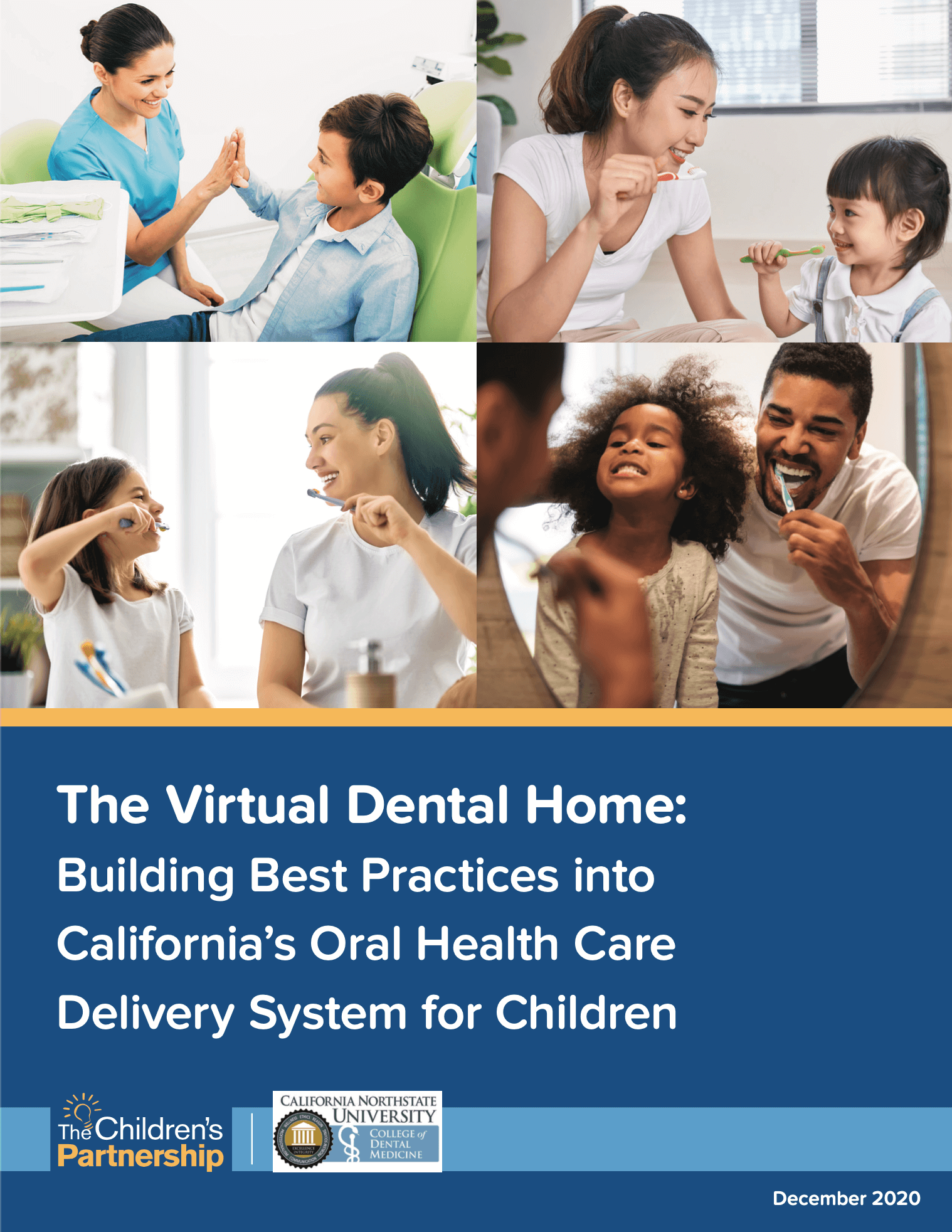
American Rescue Plan: Resources for Families
Through the American Rescue Plan Act, the federal government is providing families with more income support, unemployment benefits, rent relief, reduced health care costs, broadband benefits and more!
We developed a comprehensive checklist translated into multiple languages to help parents and families learn more about how to access these benefits. Click below to read the checklist in your preferred language.
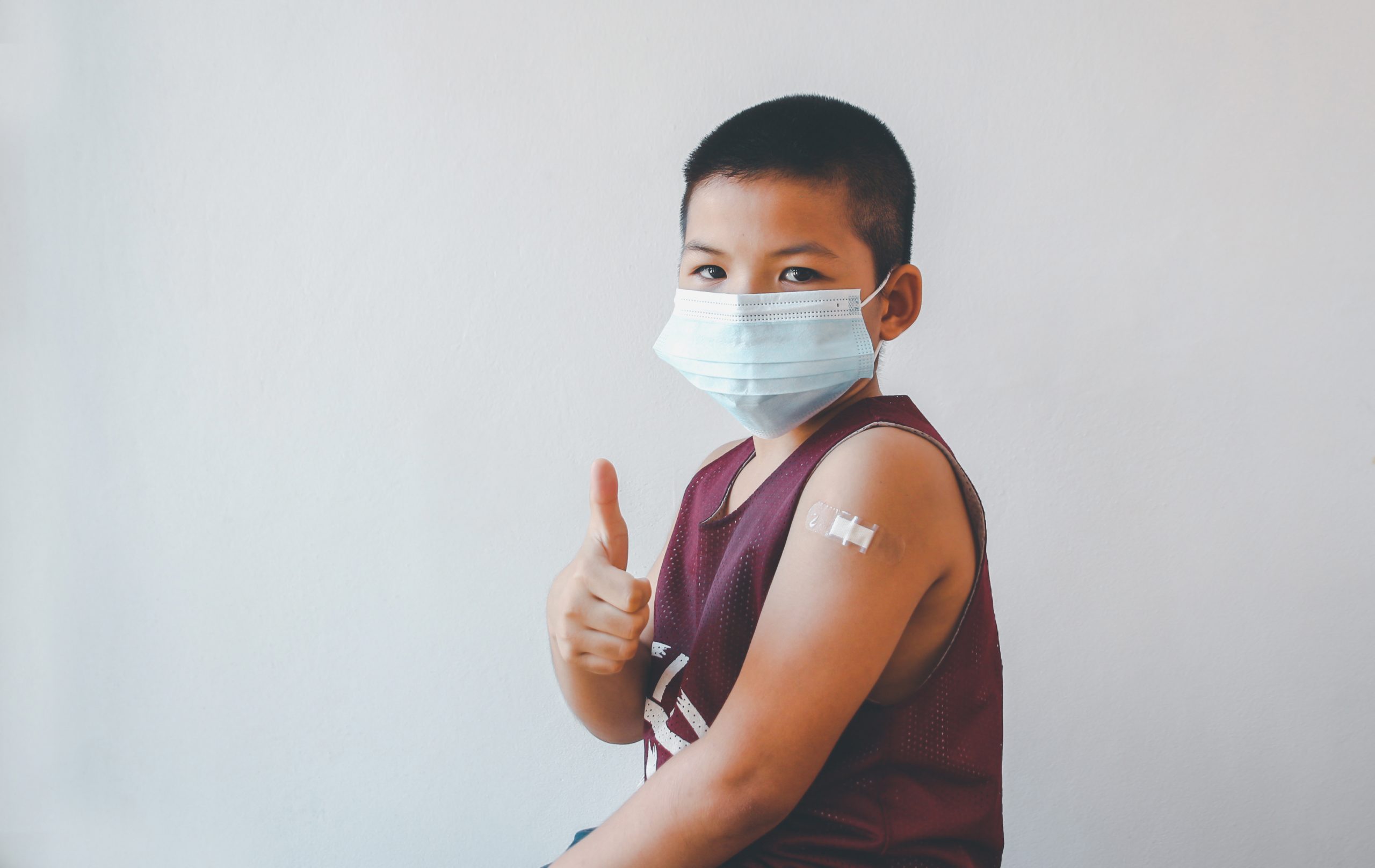
COVID-19 Vaccines for Children Ages 5-11
The COVID-19 vaccine is now available to kids 5 years old and up. The Centers for Disease Control and Prevention (CDC) recommends that all children 5 years old and up, as well as teenagers, should be vaccinated. The COVID-19 vaccine is available free of cost from doctors’ offices, community health clinics, some schools, pharmacies and other community locations.
We developed a quick and easy fact sheet with five things families and parents need to know about the COVID-19 vaccine for their young children! There is a lot of information available about the various COVID-19 vaccines, and it can feel overwhelming. To help with that, we wanted to provide you with information and resources to better understand the process and safety. Click below to access the fact sheets!
If you or your organization would like to share these fact sheets with your audiences, we’re providing the raw files so you can add your own branding! Click below to download the InDesign files in both Spanish and English to add your logo, website and social media handles.

California’s children and families are under significant and escalating toxic stress, from both the COVID-19 pandemic and longstanding historical and systemic issues such as poverty, racism and other forms of community and individual trauma.
This moment in history could be pivotal in the landscape of California’s early childhood mental health. Conditions created by the pandemic, such as isolation, economic stress, and community trauma, are all proven to negatively impact a child’s ability to thrive. It is vitally important that young children and their parents and caregivers receive the interventions necessary to support their mental health during this critical time.
This report delves into the historical and escalating mental health needs of very young children, the current landscape, and the ways in which California, local agencies, and communities must bolster their support and resources in the wake of the pandemic and its potential impacts on child development. This paper focuses specifically on community-based programs in California supporting infants, toddlers, and preschoolers’ social-emotional health, as well as their goals, service models, and funding sources.

The global COVID-19 pandemic has swept through communities of color at alarming and disproportionate rates. The ensuing school closures, social isolation and dramatically reduced access to services and care, combined with the overall threat of the virus, have contributed to the alarming mental health trends for young people. Children’s distress, especially that of children of color, has also been intensified as public attention turned to the historical and ongoing racial injustice that resulted in protests across the country in the summer of 2020.
California has experienced one of the greatest declines in children’s mental health services during the pandemic (Centers for Medicare & Medicaid Services, 2020), accelerating the decline in children’s mental health care since 2016 that placed California as 48th in the nation for children with an unmet mental health need (30 percent) compared to the national best of only 5 percent in 2018 (Commonwealth Fund, 2020).
Read our latest fact sheet that includes a snapshot of the mental health crisis since the pandemic began.

Resources from The State of Latinx Children in America
On September 22, we collaborated with Children at Risk to present The State of Latinx Children in the United States to bring awareness on issues and opportunities impacting the over 18 million Latinx children living in our country. TCP’s Managing Director of Policy, Gabriella Barbosa, moderated the event which included panels on education, health and economic justice with policy and practice experts from organizations in California, Texas and Utah. Click here to watch the event and here for information on the speakers! Check out some of the resources shared with attendees below.
Learn more about our speakers’ work:
- Learn more about Gabriella Barbosa’s work.
- Learn more about Dr. Bob Sanborn’s work.
- Learn more about Ramon & Christian Cardenas’ work, and explore the Lxs Dos Instagram.
- Learn more about Dr. Frederick‘s work.
- Learn more about Mar Velez‘s work.
- Learn more about Ciriac Alvarez Valle’s work.
- Learn more about Andy Canales’ work.
- Learn more about Ana Graciela Nájera Mendoza’s work.
- Learn more about Coda Rayo-Garza’s work.
- Learn more about Sabrina De Santiago’s work.
- Learn more about Matthew Weinstein’s work.
- Learn more about Congresswoman Escobar’s work.
Resources and links shared:
- View our one-pager on Latinx children’s health in California with the Latino Coalition for a Healthy California, and access our digital toolkit!
- Read ACLU Nor Cal’s report “The Right to Remain a Student (2016)“
- Read “Here to Learn” (2018) published by ACLU of Southern California.
- Read “Cops and No Counselors (2019)” from ACLU.
- Read the “Our Right to Resources (2020)” report and access the accompanying toolkit.
- Read “No Police in Schools (2021)” from ACLU of Southern California
- View the “State of Student Wellness (2021)” one-pager.
- Encourage students in California to Know Their Rights.

Prior to the COVID-19 pandemic, the number of uninsured children increased for the first time in a decade. Since the pandemic began, when need of support has been at its highest, Medi-Cal enrollment for children has lagged. Children’s health care dropped off and has not fully bounced back, leaving gaps in vaccinations, well child visits and mental health care.
Continuous coverage is essential to ensure children stay connected to health care. Read our newest fact sheet on Medi-Cal enrollment that highlights a few strategies California policymakers should consider to enroll more eligible children.
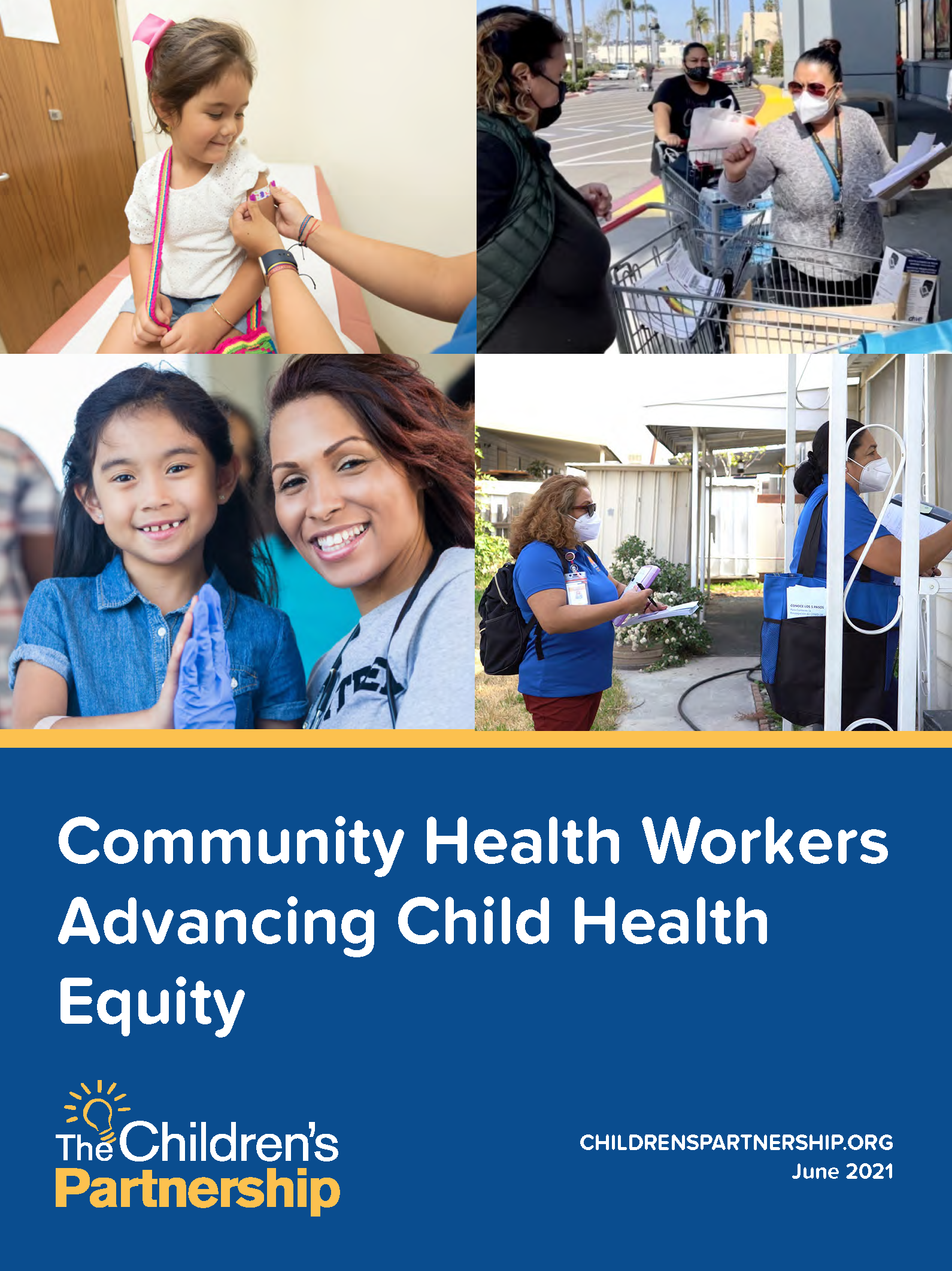
Racism impacts every state of a child’s development and continues to harm children by shaping the conditions in which they live, learn and play.
Health care in the United States is marked by centuries of racial injustice and myriad forms of violence against BIPOC communities. BIPOC communities have challenged and actively subverted racist structures in medicine to care for their own health by utilizing community-defined practices and care.
Our newest brief, Community Health Workers Advancing Child Health Equity, focuses on the community health workforce as a community-led, anti-racist solution in health care delivery for children. This brief explores the power of a community health workforce in advancing child health equity and dismantling systemic racism.

Background
One year after the United States declared a public health emergency due to COVID-19, families across California continue to struggle. We once again partnered with the Education Trust West and other partners on a survey of 600 parents of children ages 0-5 in California. Conducted during the first two weeks of February 2021, this survey follows an earlier survey conducted in late April 2020.
Key Findings
Many California families have been struggling to meet their basic needs even before the pandemic began due to systemic racism and historic under-investments in low-income communities of color. These findings show that the pandemic continues to exacerbate inequities in health, mental health, and social determinants of health.
(1) Parents have ongoing and intense concerns about the impact the coronavirus is having on the mental health of themselves and their family, as well as their child’s development and overall well-being.
- Mental Health: 70% of parents worry about their and their family’s mental health as a result of the pandemic. 87% of parents agree that receiving referrals to mental health clinics and providers could help them but only 13% currently have received or have access to referrals.
- Socialization: 73% agree they worry about their child’s ability to socialize with other children because of the pandemic
- Education and Development: 74% agree they are worried that their child’s education and development are suffering because of the pandemic
(2) California’s parents of young children continue to struggle with financial and job-related insecurity.
- Unemployment: Unemployment and temporary loss of work are disproportionately impacting low-income parents and Latinx families — 1 in 3 (35%) low-income parents with young children are experiencing unemployment and nearly 1 in 4 (23%) Latinx families with young children are experiencing unemployment compared to one in 10 (15%) of all families with young children.
- Finances: Finances are particularly concerning for low-income parents and parents of color: 59% of low-income parents and 40% of parents of color, including 43% of Latinx parents, say they feel uneasy about their personal finances over the next several months (compared to 33% among parents overall).
- Pay/hour reduction: Even among employed parents, over a third (37%) say that they have had their pay or hours reduced as a result of the coronavirus pandemic (a five-point increase since April).
(3) California’s parents of young children continue to experience significant hardship around expenses that support basic human needs like food and housing.
- Basic human needs: 1 in 3 (34%) parents with young children overall are concerned about affording expenses that support basic human needs like food and housing – the number increases for low-income parents and parents of color: Over 1 in 2 (59%) percent of low-income parents and 40% of parents of color, including 42% of Latinx parents, say they are unsure or will not be able to afford basic expenses like food and housing.
- Skipping or reducing meals: As a result of these ongoing issues, over the last year parents have continued to compensate for a lack of steady income, fears of future financial instability, and food availability. Over a third of parents of young children in the state (36%) say they have skipped or reduced the size of their own or their child’s meals as a result of the coronavirus crisis, down just six points from the beginning of the pandemic. That number increases significantly among low-income parents: nearly 1 in 2 low-income parents (46%) say they have skipped or reduced the size of their own or their child’s meals as a result of the coronavirus crisis.
(4) Parents are struggling with accessing health care for themselves and their children during the pandemic.
- Public Health Insurance: 1 in 2 (50%) of parents sought to enroll in state sponsored health insurance (Covered CA or Medi-Cal) after losing their employer-sponsored insurance. Over a third of parents overall (34%) have attempted to enroll themselves or their family in Medi-Cal during the pandemic. For many parents, enrolling in Medi-Cal was not easy — half (50%) stated that they had problems and/or issues when applying and enrolling in Medi-Cal; the most common being the need for a lot of follow-up (23%), found the application confusing (21%) or couldn’t reach a county worker to apply (18%).
- Telehealth: Slightly over a quarter of parents overall (26%) say they have not been able to access medical care using telehealth during the pandemic. For those who have been able to access medical care using telehealth, 94% were satisfied with their experience. The vast majority (94%) of parents agree that accessing their child’s doctor via telehealth could help them, but only 48% currently access their child’s doctor using telehealth (this number has increased significantly since the April 2020 survey; at that time, only 18% of parents currently had access to their child’s doctor using telehealth).
- Well-Child Visits and Immunizations: 32% of parents say they have missed well-child health appointments for their child since the pandemic first began. 18% of parents have missed immunizations for their children.
(5) There are a number of supports that could help parents of young children during the pandemic, but not all parents have access to them.
- 88% of parents indicated that extending financial and social supports to all California families, regardless of immigration status, would help parents with young children
- 94% indicated that providing parents access to their child’s doctor via telehealth through technology like a computer, tablet, or telephone would help parents with young children, but only 48% currently access their child’s doc using telehealth (was 18% in April 2020)
- 93% indicated that connecting parents to that can help with food, housing, employment, health, and other emergency needs would help parents with young children, but only 20% currently have access to to these supports
- 87% indicated that providing referrals to mental health clinics and providers would help parents with young children, but only 13% currently have access to referrals
Policy Recommendations
Based on the results of this poll, we have identified the following policy recommendations that address the challenges impacting families with young children in California:
- Invest in community-centered mental health services.
- Create whole-family wellness hubs in our most under-resourced communities that connect families to social supports such as housing, health care, legal services, and education.
- Streamline enrollment across public benefits programs to make it easier for families to enroll in programs and quickly access health, food, housing, and other supports.
- Increase investment in food and other public benefits programs available to all families regardless of their immigration status.
- Provide more access to health and mental health services through continuous coverage in Medi-Cal for young children 0-5 post-pandemic and for 12 months postpartum.
- Advance digital equity and increase community engagement and outreach in order to expand access to telehealth services.
For more data from the survey on other topics including child care, click here. For more policy recommendations from our partners, click here. For a recording of the poll briefing, click here.
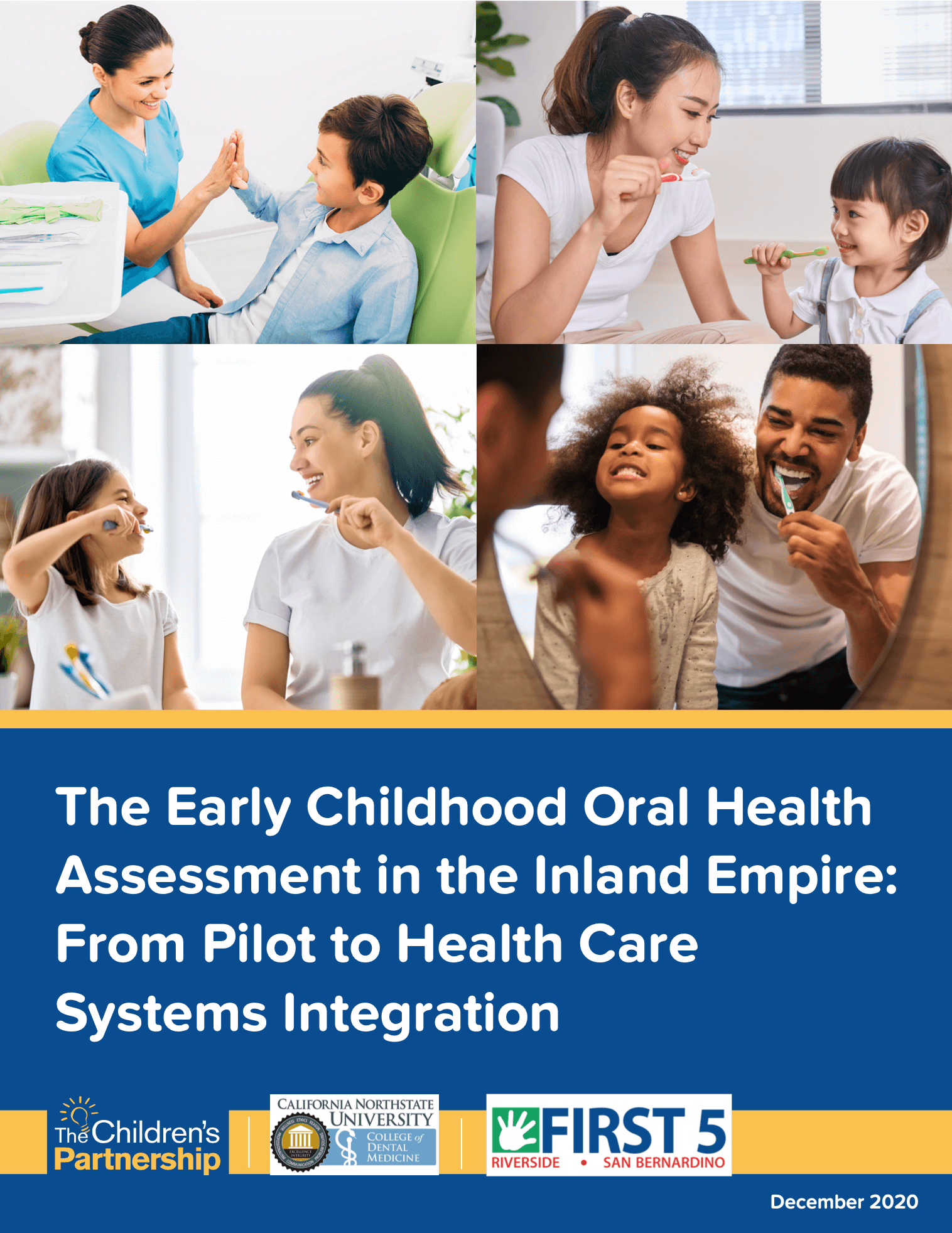
Over the past five years, California’s Dental Transformation Initiative has increased access to care and utilization of dental services for children enrolled in Medi-Cal. As part of this initiative, TCP has co-led the implementation of a Local Dental Pilot Project in the Inland Empire which has addressed the oral health needs of children, particularly children of color and low-income children, through innovative, technology-based strategies that bring care into the community.
As the pilot comes to a close at the end of 2020, we are proud to co-release three issue briefs with our partners detailing the implementation, the lessons learned, and the best practices of the Virtual Dental Home and the Early Childhood Oral Health Assessment in the Inland Empire, as well as the implementation of the Virtual Dental Home statewide.
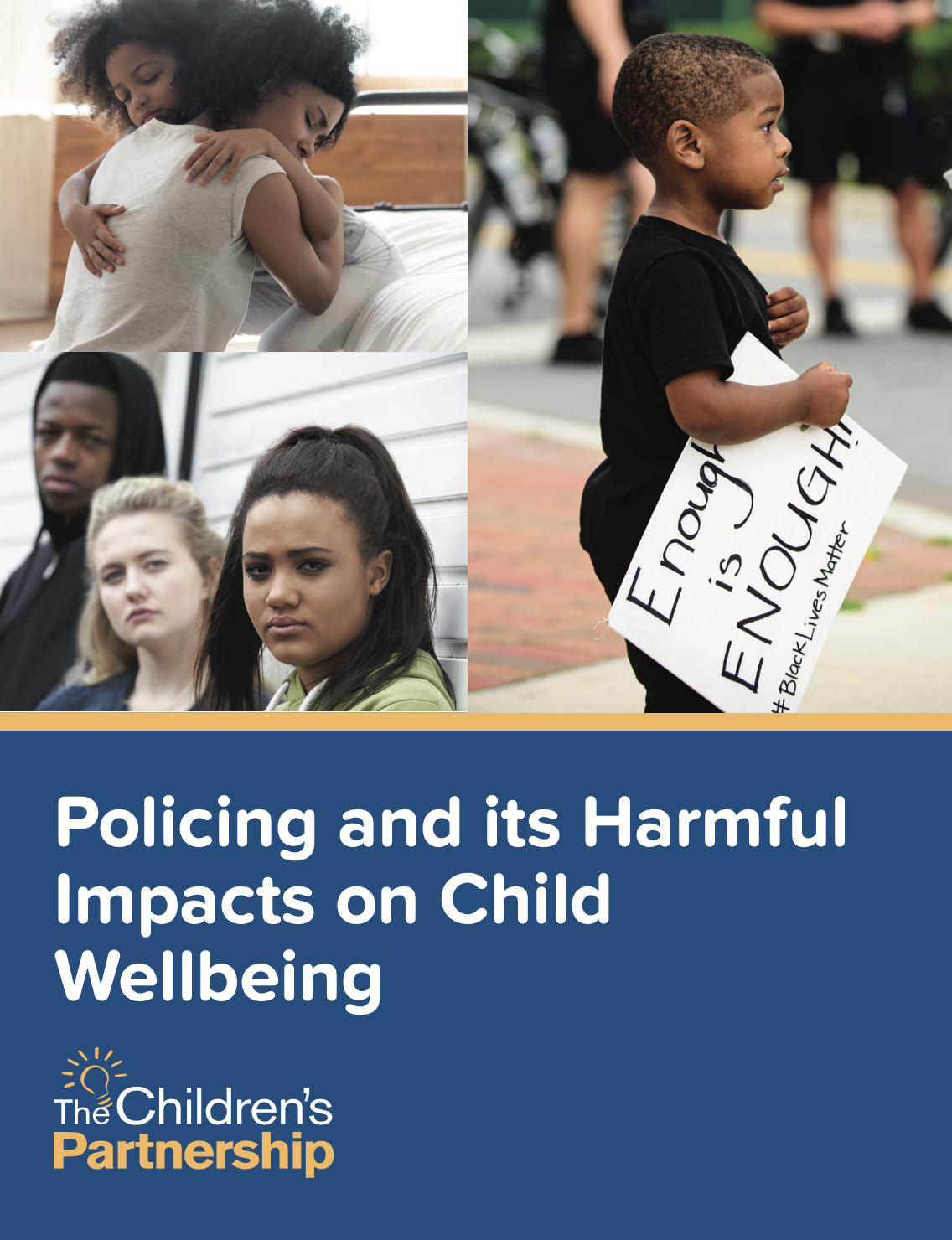
Policing and its Harmful Impacts on Child Wellbeing
Our first brief in the Racism and Child Health series, Policing and the Harmful Impacts on Child Wellbeing, offers a look at how the systemic racism that permeates U.S. law enforcement harms the health of BIPOC children. Whether direct or indirect, exposure to police violence triggers a stress response in children that leads to lasting adverse consequences from mental health and development to financial and academic success.
TCP aims to be a voice for marginalized communities and advocate for equity in health for all children. This brief highlights how systemic racism in policing leads to inequities in health for BIPOC children and offers opportunities to address the harms and prevent future negative impacts.

